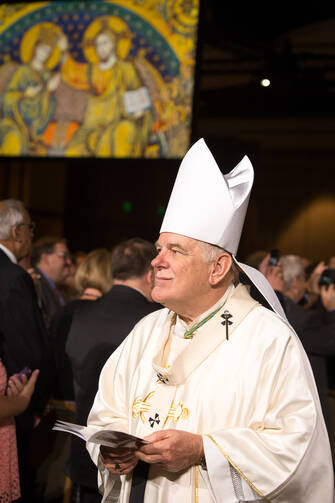If there was ever a bastion that gay marriage opponents thought they could count on, it was Florida.
From Anita Bryant’s successful campaign against gay rights in the 1970s to a 2008 constitutional amendment banning even gay civil unions, the Sunshine State has always been there to beat back same-sex matrimony, as constant as orange juice and the Everglades. But like those flowing wetlands, America’s dramatically shifting attitudes toward gay marriage are rolling through the Florida peninsula. In 2008, 62 percent of Florida voters backed the gay marriage ban; last year a Public Policy Polling survey found 75 percent support either same-sex marriage or civil unions.
This summer the ban itself is under sudden and heavy fire from the courts. Since mid-July, judges in four counties, from Key West to Palm Beach, have ruled the gay marriage prohibition unconstitutional. A federal judge followed suit on Aug. 21. “When observers look back 50 years from now, the arguments supporting Florida’s ban on same-sex marriage, though just as sincerely held, will again seem an obvious pretext for discrimination,” U.S. District Judge Robert Hinkle wrote.
Hinkle and the Florida judges have issued stays on their rulings pending appeals—which legal experts say could end up in both the Florida and U.S. Supreme Courts. If the state high court strikes down the ban, Florida will become one of the largest and most politically influential dominoes to fall in the battle over same-sex nuptials.
“Florida is late to the game,” says Bob Jarvis, a law professor at Nova Southeastern University in Fort Lauderdale. “But at this point it would be a bigger surprise if the [Florida] Supreme Court upholds the ban.”
In an Aug. 17 letter to The Miami Herald, Archbishop Thomas Wenski of Miami called the Florida rulings “raw judicial activism” and stressed the church’s belief that marriage must be a union between a man and a woman for the purpose of procreation.
“In much the same way that abortion and safe sex are promoted to protect one from the inevitable consequences of sexual activity,” the archbishop wrote, “...the advocacy of same sex marriage renders the idea of all marriages meaningless.”
Archbishop Wenski insists marriage’s aim is the “flourishing of upcoming generations.” But for him and other Catholics who support traditional marriage, the upcoming generation poses a big problem. Most independent polls show U.S. Catholics support gay marriage—60 percent, according to a recent Quinnipiac University survey, compared with 56 percent of all Americans—and younger Catholics do so by a landslide.
Earlier this year I interviewed a number of young lapsed Catholics in Miami, and most cited the issue as a factor in their distance from the church. When I spoke with Archbishop Wenski about those conversations, he insisted that younger Americans are “perhaps the least religiously informed generation.... If they would seek to understand [church] teachings, they might find that they’re not as intolerant as they think.”
And as Pope Francis de-emphasizes matters like gay marriage, a growing number of Catholics perceive more important priorities, from the priest shortage to America’s widening wealth gap. Chris Johnson, a Catholic attorney and parish council president in Miami, puts it this way: “We have bigger fish to fry.”
Jarvis says he too has noticed less anti-gay marriage fervor in Florida. The pope, he says, “seems to have given cover” to those who may oppose same-sex marriage, but don’t necessarily want to go to the mat on the subject.
The church has another quandary: Latino Catholics. They were considered a stalwart socially conservative group, but this year the Public Religion Research Institute found 56 percent of them support gay marriage. That’s a head-turner for those Catholics who were counting on Latinos to bolster not just church membership, but doctrinal fidelity. And it’s especially significant in Florida, which has the country’s third-largest Latino population.
Archbishop Wenski has sought to play down the Florida court rulings as another skirmish in the culture wars. But as these recent court rulings suggest, Floridians increasingly see gay marriage as a weightier question of civil rights.
In that regard, Archbishop Wenski draws a distinction between what he calls “rights and right.” He can only hope the Florida Supreme Court—or the U.S. Supreme Court—draws it too.








